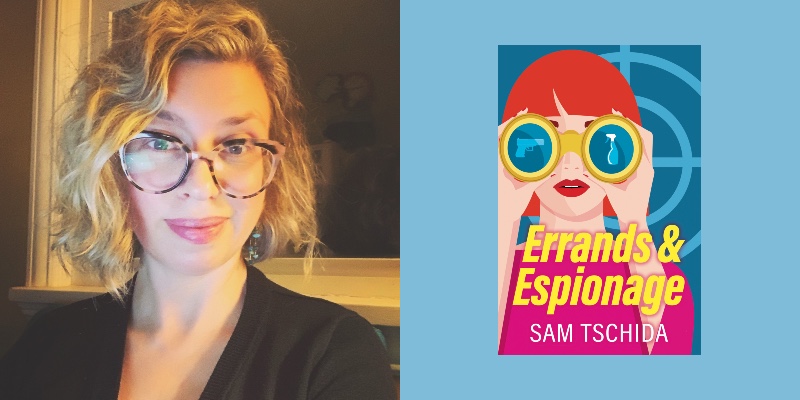I just read this time management book, 4,000 weeks: Time Management for Mortals by Oliver Burkeman. The book begins with the stark fact that we only have 4000 weeks to live, if we’re lucky. That’s not a lot of time, especially for a woman. Let’s face it, we have a lot more to do, unless you’ve figured things out better than I have. For all the progress we’ve made, women do almost all the housework, the childcare, plus two incomes are generally required to keep Netflix on, unless you married a sugar daddy. I didn’t think of that in time. My husband was the hot janitor when I met him.
As soon as you have kids you have to share those 4000 weeks with tiny people. If you want them to survive the first several years, mothering is a significant time commitment. If you want them to become productive members of society, it’s even more. Screens will take them off your hands more effectively than a husband in my experience, but they might not turn out very well.
When I first got pregnant, I felt my life constrict in a way that made it hard to breathe. Instead of nesting, I wrote books. Well, for the first baby I nested, but then it was all over. Despite what capitalism tells you, a healthy baby needs hardly anything to survive besides a mother, but a mother needs a whole hell of a lot. For me, I yearned for creative fulfillment. During my second and third pregnancies, I wrote books on my lunch hour or during naps. The first one was published, but even if it hadn’t been it would have been worth it. I liked the second unpublished one even better. An agent told me it wasn’t marketable because you can’t write about nuclear weapons in a chick lit voice. Seems obvious in retrospect, but another problem for women.
Restricting my available time clarified my priorities. My family and my writing are at the top, plus my business because a girl’s gotta eat. I don’t get much else accomplished, but that’s okay. I will never keep up with the Joneses. If I want to write books, I can’t. The Joneses aren’t contributing a lot of creative content to society. They’re consumers, not creators. If you’re a creator, you have to follow a different path, especially if you’re a mother. Dudes might be able to get away with Jonesing it. If you have a wife, I imagine you can do anything.
And time isn’t the only problem of motherhood. There is also space. Virginia Woolf famously said that “a woman must have money and a room of her own if she is to write fiction.” Even considering the deferred maintenance and never-ending laundry, I live in a pretty nice house, but it doesn’t have any extra space. I can write in the kitchen or the living room, or on the deck if the weather’s nice. My husband works nights so he’s sleeping in the bedroom during daylight hours. He cleaned off a desk next to the bed, but it feels weird working in dim lighting next to a body. I don’t think it would meet Virginia’s standards. Even without a room, I can get it done. I’m drafting this essay from the orthodontist’s waiting room. Daphne is getting her braces off. (I wrote my first published book while I was pregnant with her.)
I fantasize about a room of my own, but who knows, maybe I’d get lazy if I had an actual office. Either way, Virginia Woolf didn’t have it all wrong, but she didn’t have it all right either. You can write fiction without enough money to support yourself or a room of your own. I’m a white lady in Minnesota in the year of our lord 2024, and if I’m making do, other people are too.
My advice is to pick a partner who appears somewhat helpful. If they’re not helpful, they better be rich. But keep in mind, staying at home while your partner pays the bills will leave you with more time and less power. A housewife has to earn her keep. In the end, it’s not as great as it sounds. Either way, before serious commitment, disclose the fact that you’ll be spending several hours a day with people you made up. Your partner will probably agree to this, thinking that you’ll be the next Stephen King. They will probably fantasize about quitting their job when you hit it big, which will most likely never happen. It’s up to you how you’re going to deal with this issue. Be upfront in the beginning or string them along. Pick your poison.
In the 1987 version of Overboard, the woman who plays Goldie Hawn’s mother says, “If you have a baby, you won’t be the baby anymore.” Unlike Virginia Woolf’s thing, this is definitely true. Once you have kids, the buck stops with you. That means, if you want to write (or do anything that is entirely for you), make it a priority and don’t apologize. Ultimately, your kids will be better off if you aren’t always available. They can make their own snacks while you write a book. And don’t worry about whether your writing will make money or get published because it’s a bad idea to stake your happiness on things that can’t be guaranteed. All you can do is put on your noise canceling headphones, steal some time, and write like a mother.
***


















